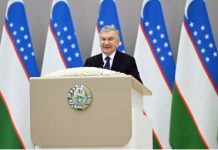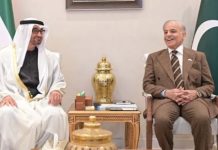BRUSSELS / DNA : The European Union today reconfirmed its long-standing solidarity and partnership with the people of Afghanistan, pledging support of €1.2 billion over the period 2021–2025 in both long-term and emergency assistance at the 2020 Afghanistan Conference “Peace, Prosperity and Self-Reliance”.
EU High Representative for Foreign Affairs and Security Policy/Vice-President of the European Commission, Josep Borrell, speaking at the opening session of the conference, said: “With intraAfghan peace negotiations having started, but terrible violence still causing great suffering for the
Afghan people, Afghanistan is at a crossroads. The Afghan people can count on the European Union’s support for a prosperous and peaceful future for their country, but our support relies on democracy, human rights, and social progress being protected.”
Commissioner for International Partnerships, Jutta Urpilainen, who announced the EU’s pledge at the conference and participated in a side event on anti-corruption, said: “A pledge of €1.2 billion for the next four years illustrates our commitment to the Afghan people. Our assistance will support the Afghan authorities’ agenda for democratic, sustainable development and modernisation, helping to lift people out of poverty, improve governance, reduce corruption and enhance the daily lives of the Afghan people.”
Commissioner for Crisis Management, Janez Lenarčič, who co-hosted a side event on sustainable peace building, as well as a high-level meeting on international humanitarian law and the protection of civilians in Afghanistan ahead of the conference, said: “We are boosting our humanitarian aid to help those most in need. While it must never become a political instrument, humanitarian assistance, International Humanitarian Law and protection of civilians must be central in the ongoing Afghan Peace Process negotiations.
The protection of civilian lives and respect of International Humanitarian Law in conflict cannot wait for the end of the peace negotiations. It must begin now.”
Significant but conditional support The significant financial commitment demonstrates that the EU is unwavering in its determination to promote a peaceful, democratic, sovereign and prosperous Afghanistan, deserved and long awaited by its people, and makes clear that EU development assistance is based on clear conditions and principles.
These conditions are laid out in a paper co-authored by the EU and other key international partners of the country, which combined provide 80% of international assistance to Afghanistan. As reiterated by High Representative/Vice-President Borrell and Commissioner Urpilainen at the Conference, the EU’s support to Afghanistan is conditional upon an inclusive, Afghan-owned, Afghan-led peace process that builds on the political and social achievements of the last 19 years. Preserving democratic pluralism, the constitutional order, institutional transparency and accountability, and the rule of law, further promoting human rights and fundamental freedoms, especially for women, children and minorities and including freedom of media, and pursuing sustainable peace, development and prosperity, are essential for Afghanistan’s future.
Many of the principles for EU and international support are reflected in the Joint Political Communiqué and the Afghanistan Partnership Framework, which were adopted at the Conference.
The EU’s development assistance is subject to adoption of the next EU Multiannual Financial Framework along the lines proposed by the European Commission on 2 June. This assistance will support implementation of the second Afghanistan National Peace and Development Framework covering the period of 2021-2025. The EU’s support will also help to address growing poverty levels in Afghanistan in the wake of the COVID-19 pandemic.
Alongside development support, the EU will also continue to provide impartial, life-saving humanitarian assistance, boosting the coronavirus response as well as assisting victims of conflict and forced displacement, including with emergency food provision, protection services to address gender-based violence, the education of children, as well as advocacy for respect of International
Humanitarian Law by all parties to the conflict. In 2016, the EU similarly pledged Afghanistan €1.2 billion euros over a four-year period. Actual payments in 2016–2020 exceeded €1.75 billion. In 2002–2020, the European Union has committed in total more than €5.1 billion to Afghanistan. Afghanistan is the largest beneficiary of EU development assistance in the world. EU support aims to preserve the political and development achievements of the last 19 years and is guided by strong democratic and human rights principles.
The EU has been among the most generous humanitarian donors to Afghanistan. Total EU humanitarian assistance in the country since 1994 amounts to almost €1 billion.











